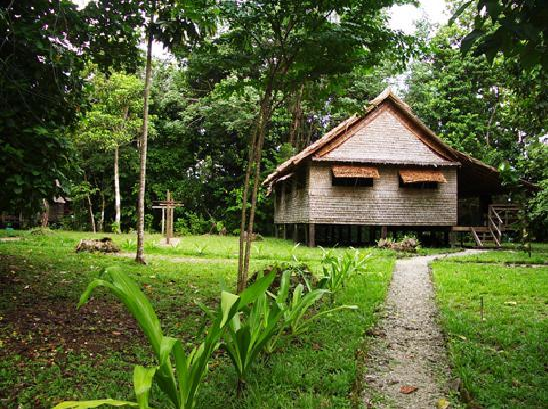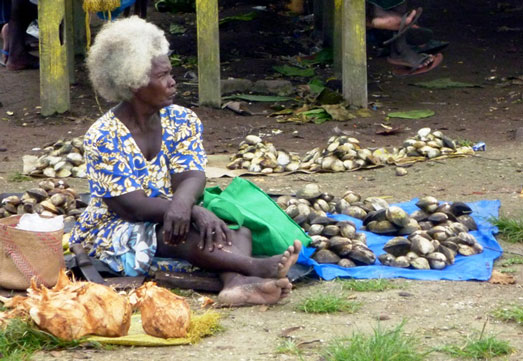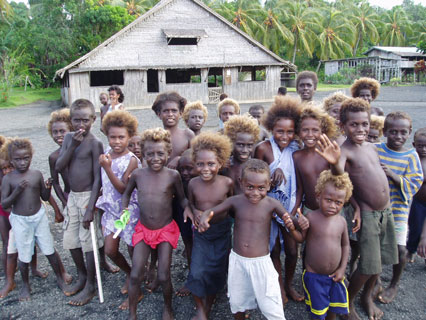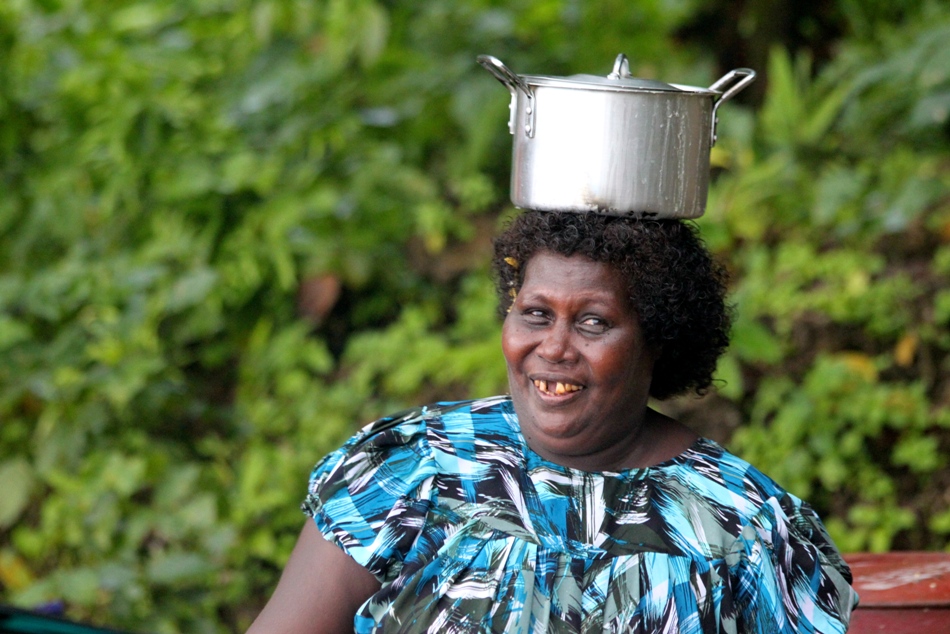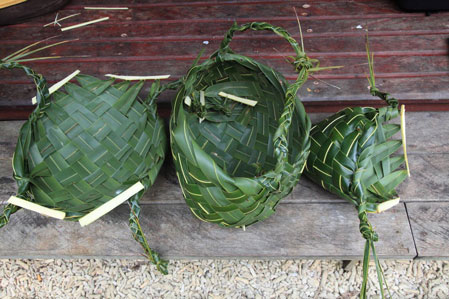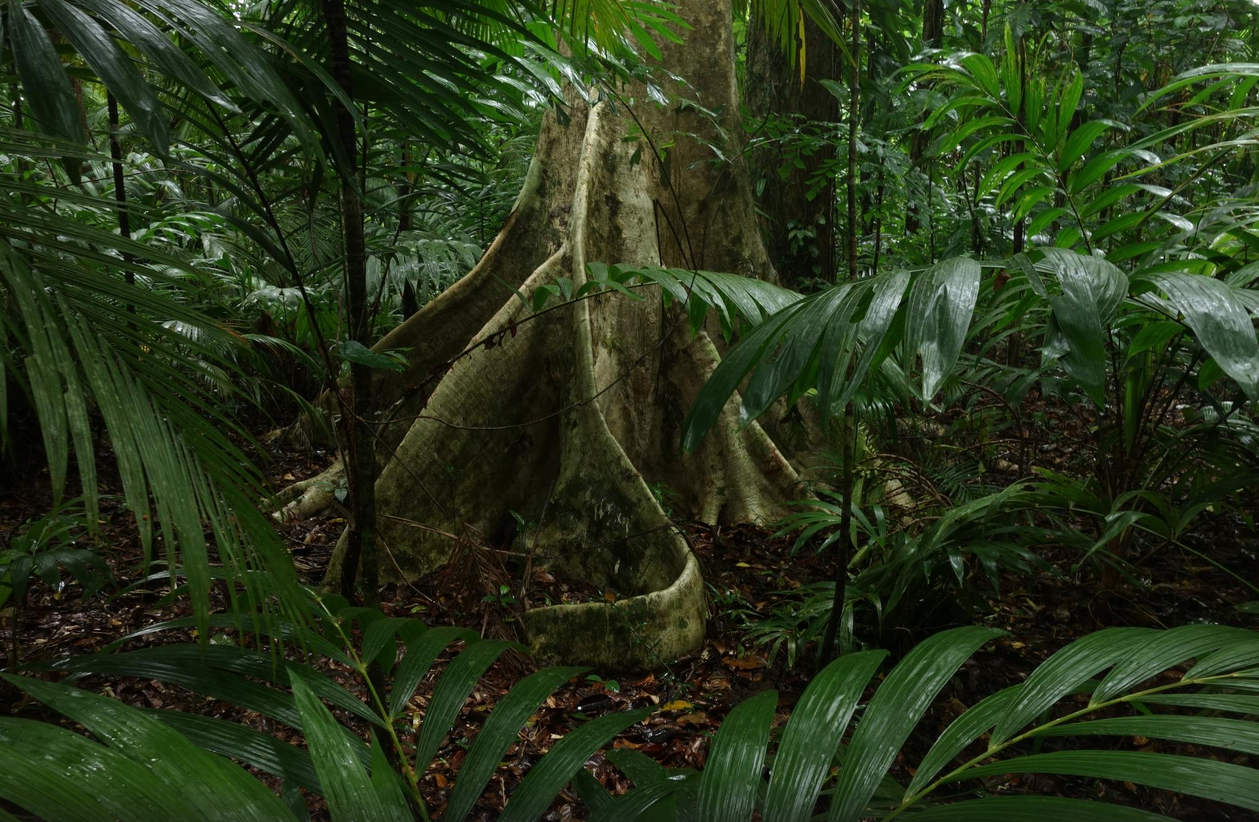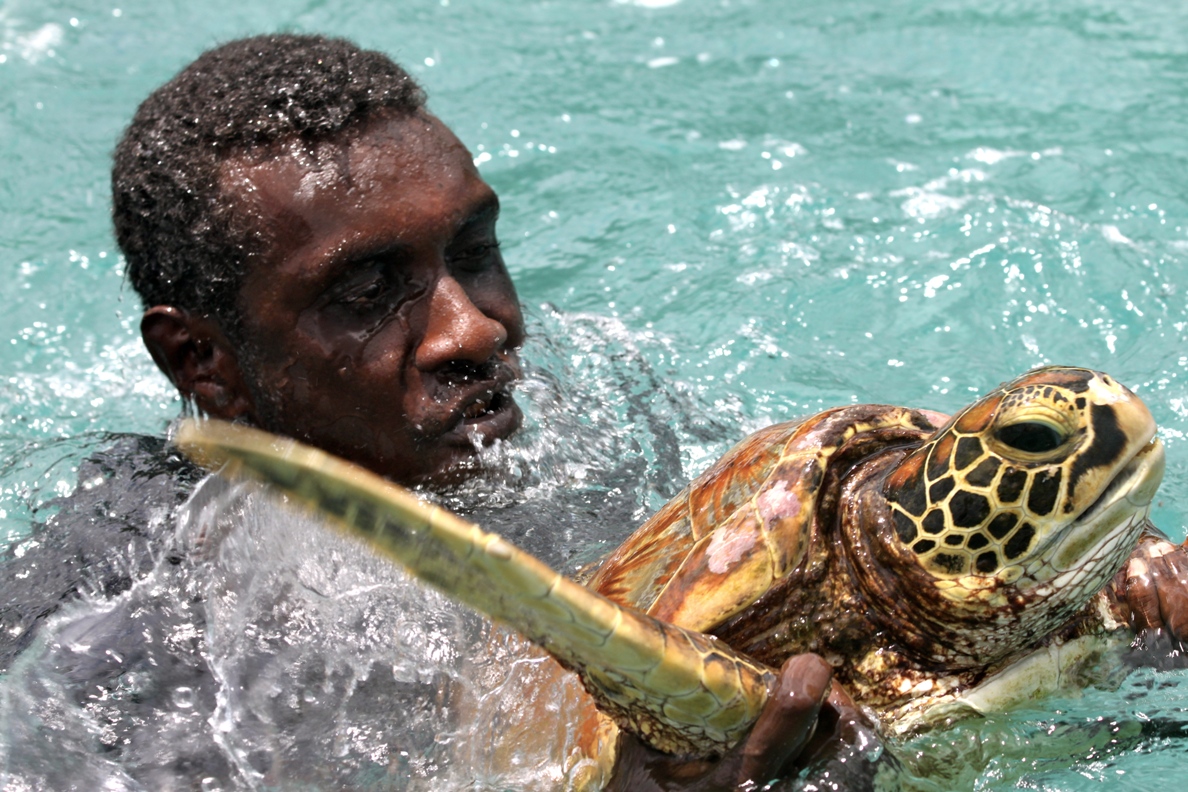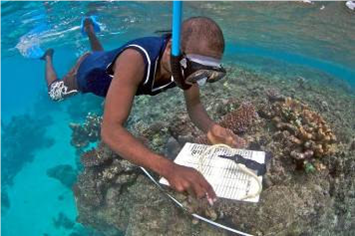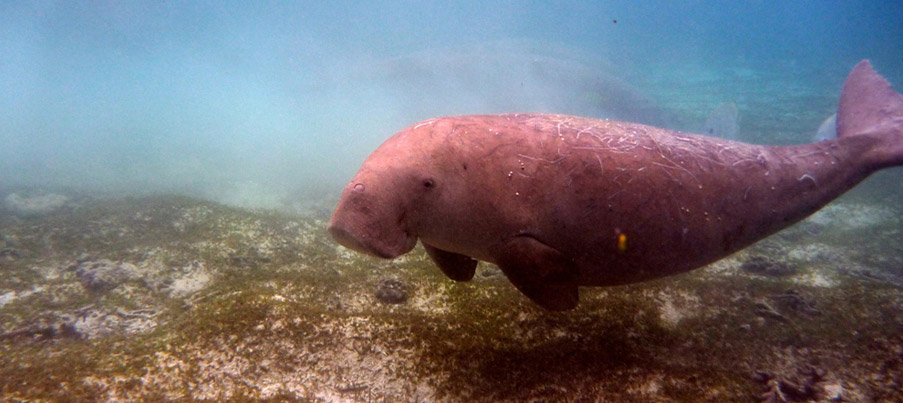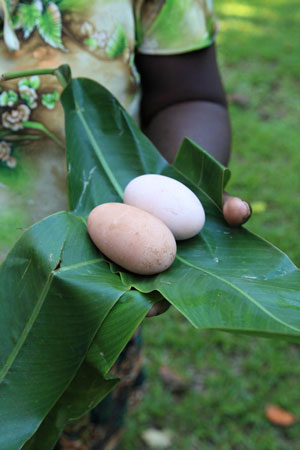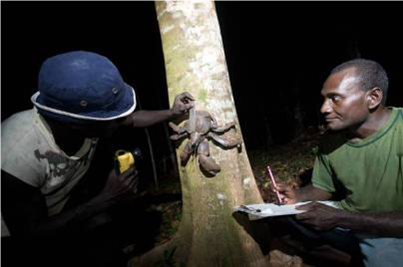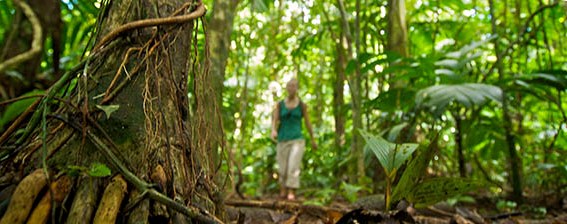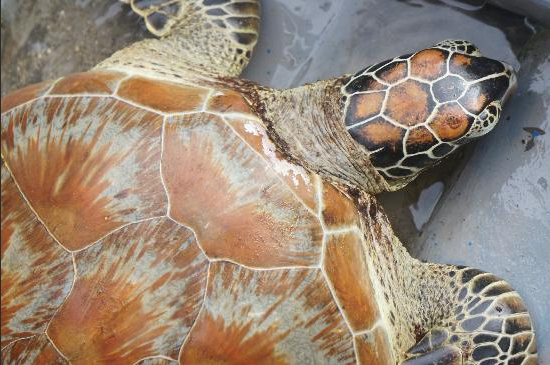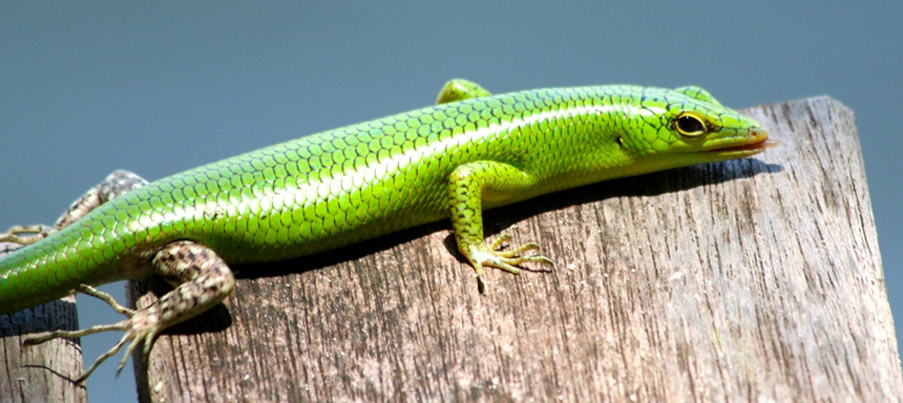Tetepare Eco Lodge
Tetepare Island, in the Western Province of the Solomon Islands, is one of the conservation jewels of the South Pacific. This long, rugged island, cloaked in rainforest and fringed with biodiverse reefs, is the largest uninhabited tropical island in the Southern Hemisphere. Home to the one of the Solomon Islands' leading conservation projects and a unique, locally-owned and managed ecolodge, Tetepare’s natural abundance attracts visitors from around the world.
Tetepare has received international recognition for its conservation and archaeological significance. Experts from around the world, including renowned ornithologist and author Jarrod Diamond, have commended the work on the island. A dazzling variety of plants and animals make their home in the island’s 120 square kilometres of primary lowland rainforest – some of the last remaining in Melanesia.
Accommodation
Accommodation at the Tetepare Island Ecolodge is provided in 5 traditional Melanesian leaf haus with twin or double beds. Each leaf-haus are set on the edge of the rainforest with views of a sparkling lagoon which is a short walk away.
At night, you will drift off to sleep to the sound of waves crashing on the fringing reef of the lagoon and wake in the morning to the songs of birds.
Presently, Tetepare can accommodate up to 16 visitors in leaf house accommodation. Bedding and mosquito-nets are provided. To ensure guests experience the true tranquillity of the largest uninhabited island in the South Pacific, they endeavour to limit visitor numbers to a maximum of 16 guests at any one time.
Shower and toilet facilities are basic and clean with both indoor and outdoor showers. The water supply is rainwater. There is no electricity on Tetepare. In keeping with ecologically-sustainable principals, they do not run a generator on Tetepare. Solar energy is used to provide lighting in the eating area, the field station and the ecolodge.
Meals are prepared by Tetepare’s specially-trained local cooks using fresh organic local ingredients, including vegetables grown in village gardens on nearby Rendova Island, and seafood caught fresh from the waters around Tetepare. They can also cater for vegetarians.
House Keeping
Teteapre are happy to offer a clothes-washing service for guests for an additional fee. Please be aware that weather conditions mean that clothes may not come back dry for 24 hours or more.
Babysitters can be hired to assist with child-minding on request. If you can, please let them know when making your booking if you are likely to require child-minding services. Arrangements can be made at short notice, of course, but they do prefer to plan this service ahead of time so we can be sure to have the most experienced people ready to look after your children for you.
Unfortunately, there is nowhere on the island where batteries can be charged for cameras etc, so please bear this in mind before coming to Tetepare.
Respecting Local Custom
Tetepare would always prefer it if no alcohol comes onto Tetepare, alcohol is the cause of significant social problems amongst local people. If you do bring any with you (there is none available on Tetepare), please be sensitive to local customs and drink it only in your room. Do not offer alcohol to staff whilst on the island.
When visiting the local villages, please wear knee length shorts or skirts. For getting in and out of our boats, female guests may also find it appropriate to wear some shorts beneath their skirts. Board shorts can be worn over bathers when swimming.
Activities
A stay at the Tetepare Island Ecolodge can be as adventurous or relaxed as you like. You can unwind on the beach with a book, hike across the island through the pristine rainforest, snorkel among the rich coral reefs of the warm turquoise lagoon, visit old village sites from head hunting days, go bird watching, see endangered sea turtles, or take part in countless other activities. Please be aware that activities – including all that involve the turtles and the dugongs – are subject to regulation by the conservation team on the island.
Rainforest Walks
Snorkelling
Wildlife Watching
Bird Watching
Turtle Monitoring with Rangers
Around the Island Ranger Patrols
Moonlight Coconut Crab Walks
Night Forest Walk
Meagode Meanders
Canoeing
Picninc
Boat Trips
Swimming
Kastom Site Visits
Village Visists
Bush Medicine Walk
Traditional Solomon Island Cooking Classes
Basket Weaving
Conservation Programs
Tetepare is protected and managed by the Tetepare Descendants Association. The entire island has been set aside for conservation; in addition, the TDA has also established a 13km-long Marine Protected Area (MPA) which is a no-take zone. This permanently closed area runs from the western tip of the island on Mbo Point at S 8º 42.22' E 157º 26.36' to the eastern edge of Soe Island at S 8º 43.62', E 154º 47.34' along the southern weather coast of Tetepare. This permanent closure also includes the land area from the low water mark to 500m inland. The MPA protects Tetepare’s reefs, lagoons and coastal waters to all harvesting, forming the largest Marine Protected Area (MPA) in the Solomon Islands.
TDA employs rangers to patrol the island and the MPA. Signs have been installed and are maintained at each end of the MPA. TDA rangers have enforced this closed area since 2003. The aim of this MPA is to provide a habitat which protects the reproduction of marine species and gives TDA the opportunity to preserve a portion of Tetepare's pristine ecosystem in its natural state.
In June 2010, Descendant members of the TDA and their communities also decided to create and patrol two further, temporary MPAs around Tetepare, to help stocks recover from a recent increase in harvesting. The temporary MPAs will operate on a one-year-on, one-year-off rolling basis.
The TDA also runs numerous monitoring programs to support our conservation work.
Marine And Resource Harvest Monitoring
Turtle Conservation and Conservation
Baniata Leatherback Incentive Program


